Is this the future of healthcare? Meet the Smart Aid Kit by Map Project Office and Modem
The experimental Smart Aid Kit was designed by Map and Modem to promote a new vision for universal healthcare
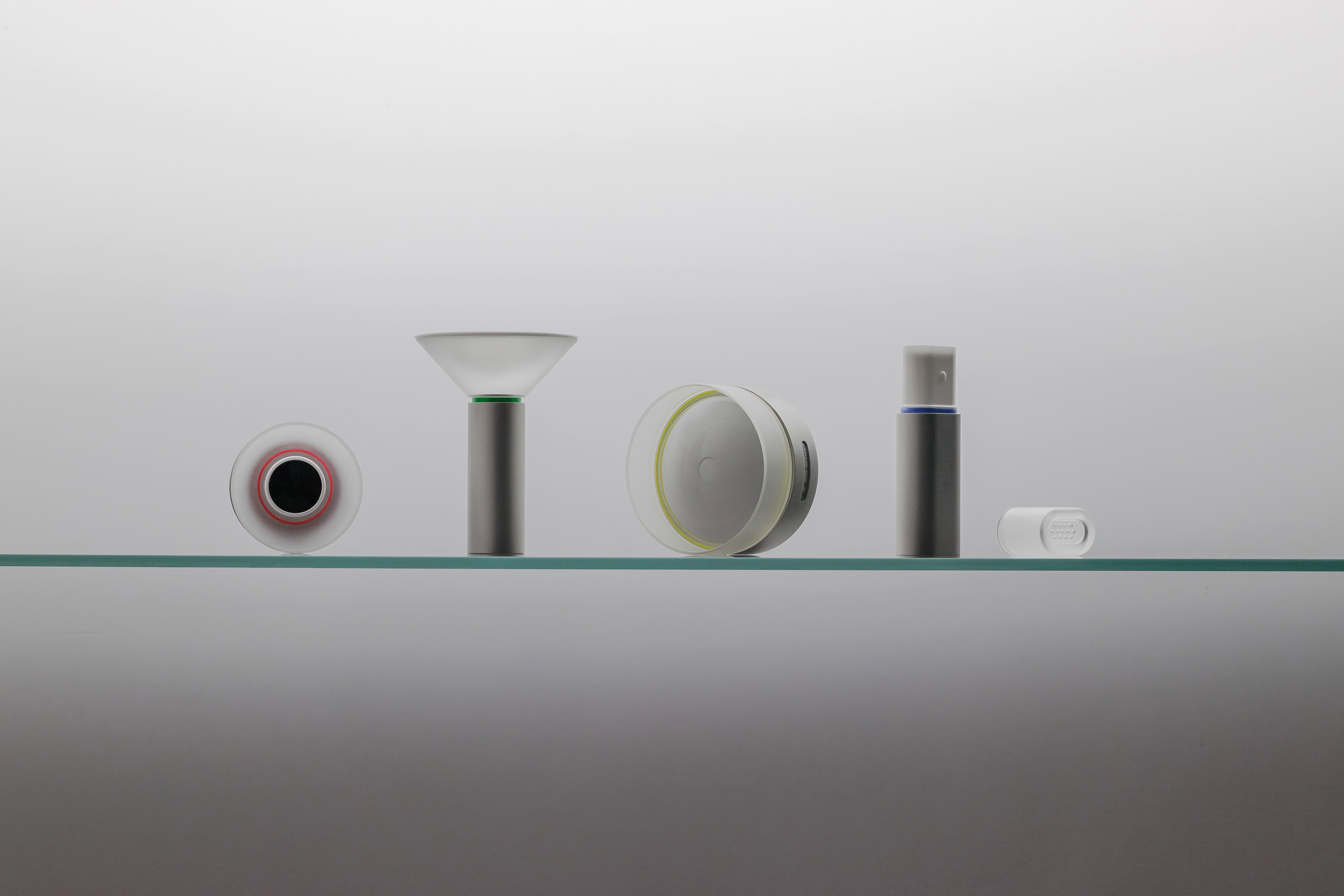
Receive our daily digest of inspiration, escapism and design stories from around the world direct to your inbox.
You are now subscribed
Your newsletter sign-up was successful
Want to add more newsletters?

Daily (Mon-Sun)
Daily Digest
Sign up for global news and reviews, a Wallpaper* take on architecture, design, art & culture, fashion & beauty, travel, tech, watches & jewellery and more.

Monthly, coming soon
The Rundown
A design-minded take on the world of style from Wallpaper* fashion features editor Jack Moss, from global runway shows to insider news and emerging trends.

Monthly, coming soon
The Design File
A closer look at the people and places shaping design, from inspiring interiors to exceptional products, in an expert edit by Wallpaper* global design director Hugo Macdonald.
The Smart Aid Kit is a new collaborative project by Map Project Office and Amsterdam innovation design studio Modem, promoting a new vision for accessible, universal healthcare. Its creators describe the project as 'a series of thought-starters that illustrate how design and technology could unlock accessible healthcare for communities across the globe', and it is imagined as a series of essential tools that empower individuals to perform basic triage and receive basic health advice.
Featuring four devices, the Smart Aid Kit is the result of in-depth thinking about the role of AI in healthcare and how we can harness contemporary knowledge to become independent in the management of our care. While still a conceptual design exercise, the work by Map and Modem offers a rethink of basic healthcare that takes into consideration in-depth analysis, prevention and accessibility.
Smart Aid Kit by Map Project Office and Modem
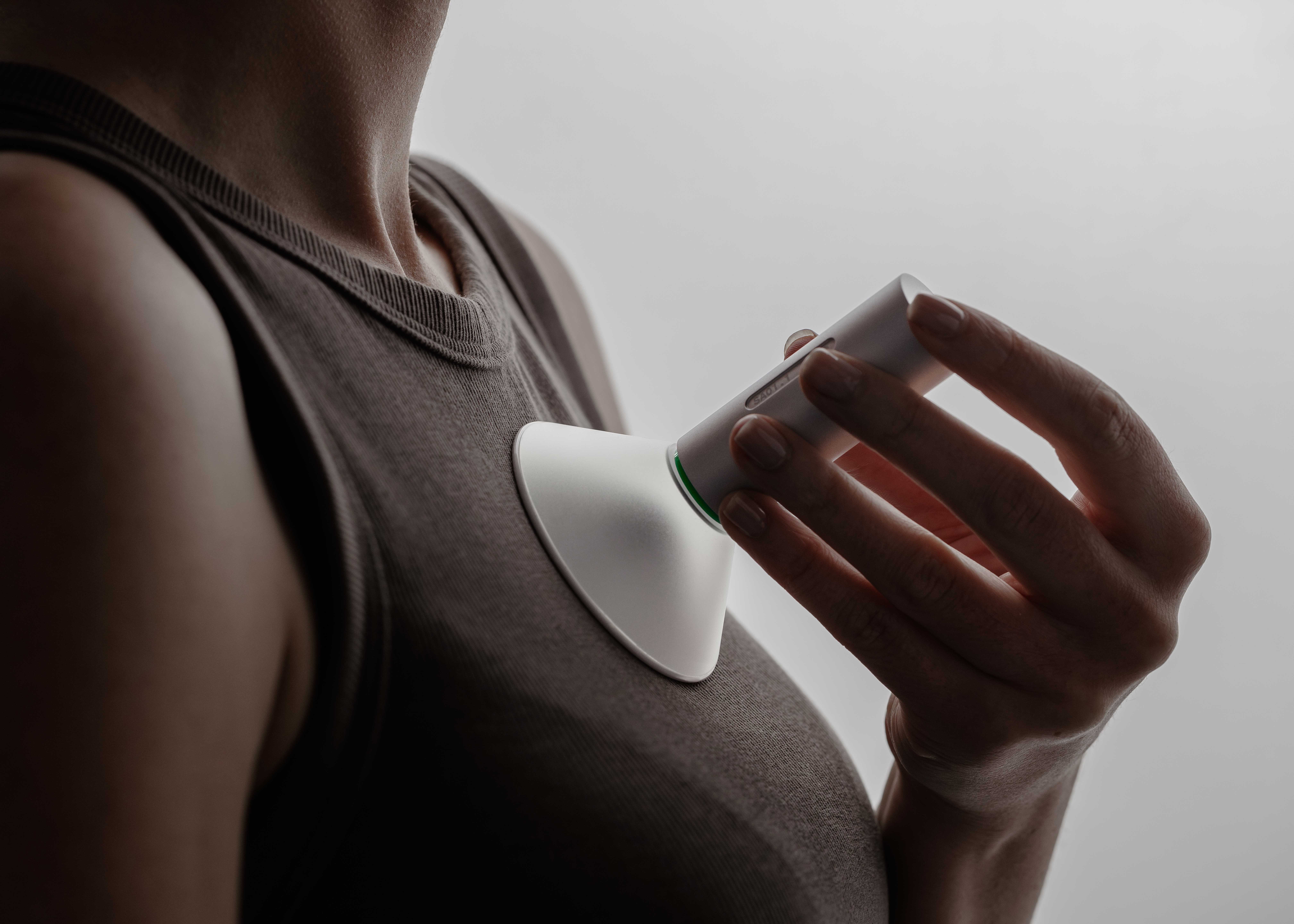
Stethoscope
The starting point for the design team was an analysis of the basic tools used by doctors when first meeting a patient, and what is usually the essential information needed by general practitioners. The kit comprises a stethoscope, a spirometer and an ophthalmoscope, as well as a skin analyser. The tools are collectively powered by an advanced medical AI that acts as a virtual GP, with a conversational interface offering simple instructions and relaying information in a way that transcends socio-economic and cultural barriers, with the aim to be understandable for all users.
'Together we wanted to showcase a series of simple objects that could perform well and are instinctive to use,' explains Emilie Robinson, creative director at Map Project Office, which has previously collaborated with Google on sculptural home sensors that communicate in subtle ways, and is behind one of our favourite design podcasts. 'As with our other work, we wanted to ensure that although Smart Aid Kit is experimental, crafting the tools physically was important to understand how the designs would look and feel when used.'
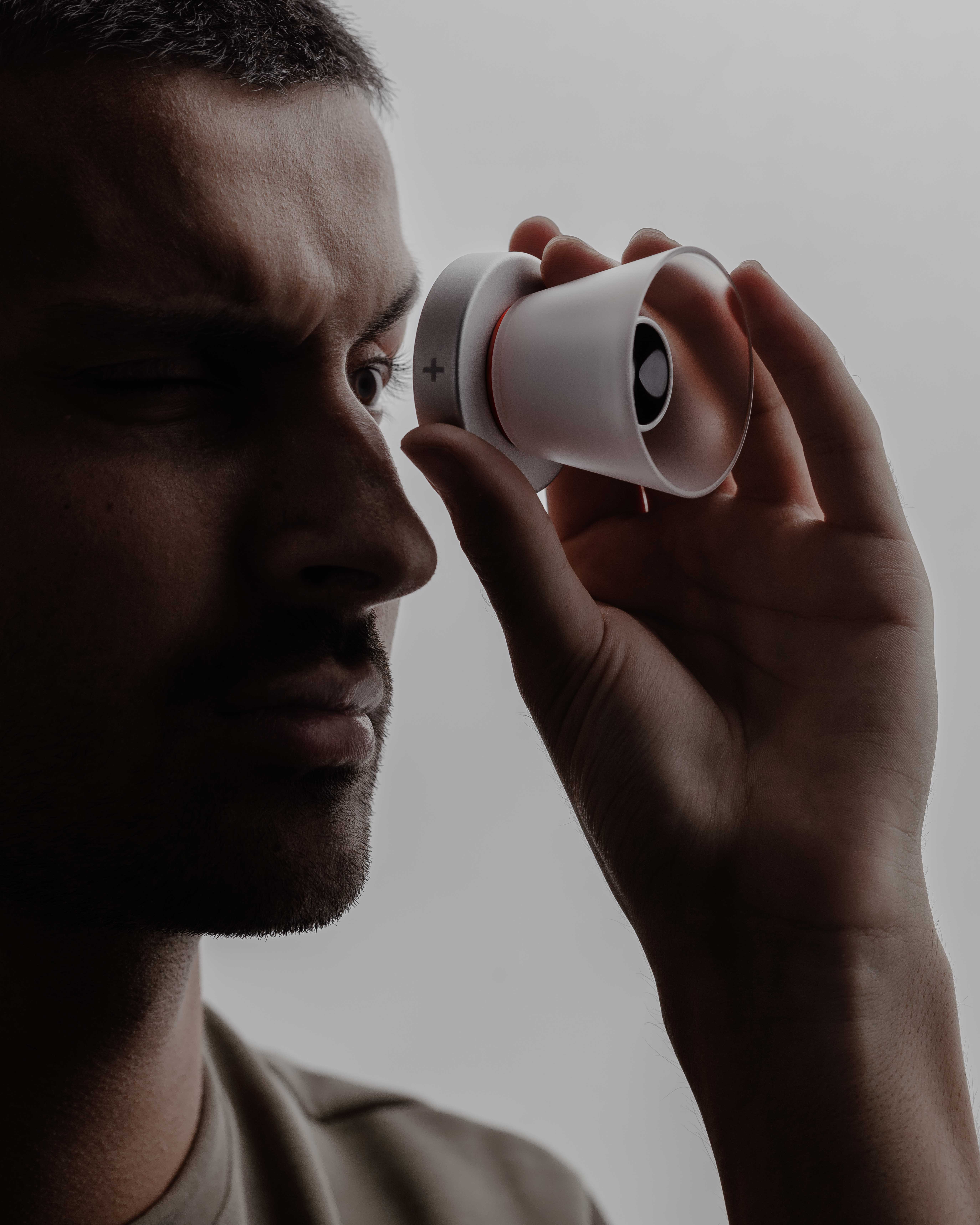
Ophtalmoscopez
The concept of primary care guided the design team, who created essential silhouettes for the objects with a pure, easily readable visual language. Meanwhile, the tools are solar powered and use minimum energy. Each tool is identified with a colour band, referencing the primary colours used across the healthcare ecosystem.
The tools are both familiar in their use and redesigned to be made more accessible to the general, non-medical public. The stethoscope features a large conical diaphragm that can be positioned on the skin to detect body sounds, which are then relayed to the AI tool to measure and analyse data including temperature, blood pressure and oxygen saturation.
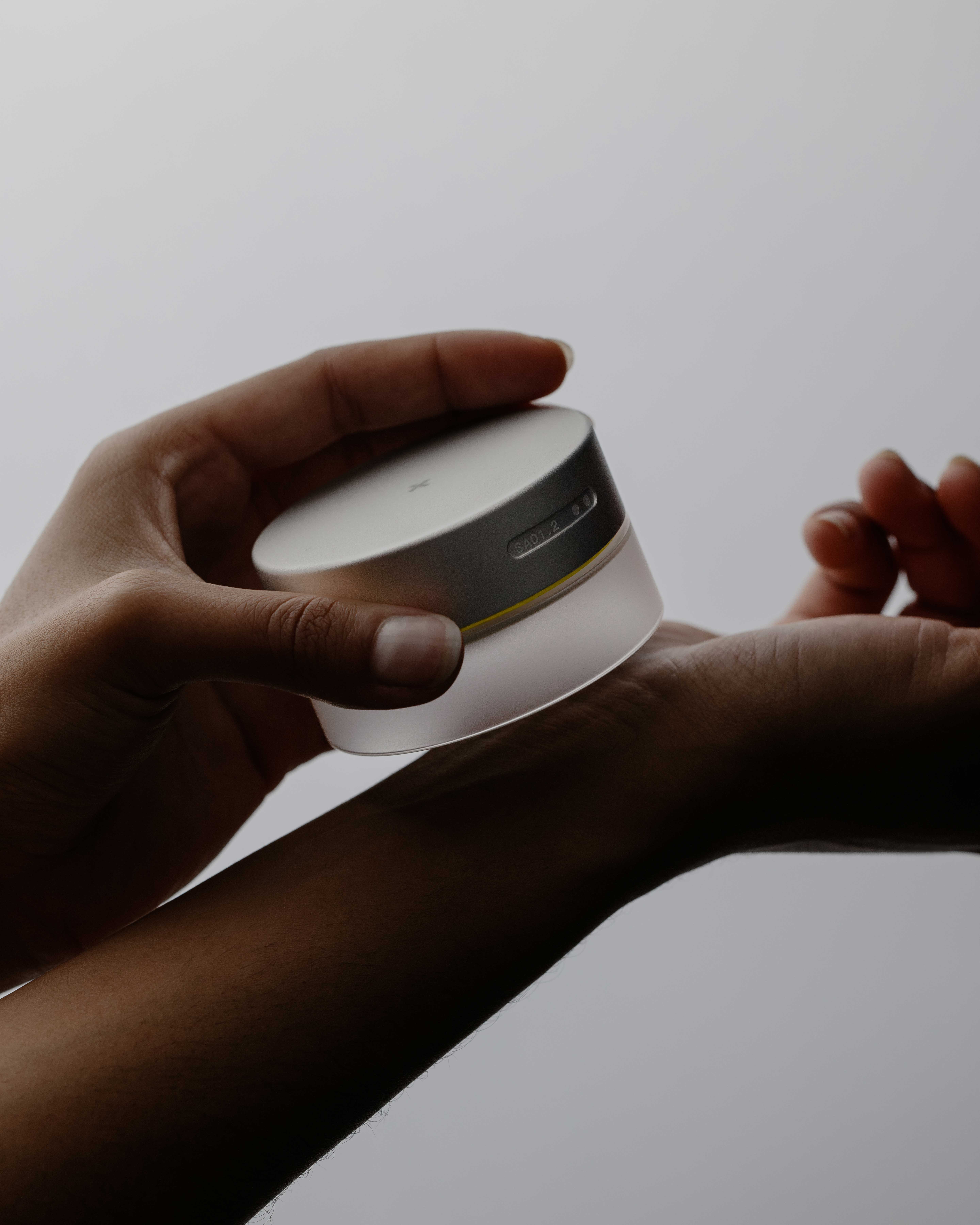
Skin Analyser
The Spirometer is designed to assess microbiome analysis through a mouthpiece that can be placed on a user's mouth as they exhale, for the device to analyse air and saliva droplets. While a traditional ophthalmoscope showcases the inside of the eye, the Smart Aid Kit version uses the AI assistant to analyse the eye's surface and back in order to detect neurological disorders, assess cardiovascular health and recognise auto-immune diseases, also helping with early detection of diabetes and identification of genetic disorders.
Receive our daily digest of inspiration, escapism and design stories from around the world direct to your inbox.
Finally, the Skin Analyser looks at hydration and pigmentation to diagnose dermatological conditions, detect allergens and potentially assist with early skin cancer detection. It features a domed end that is placed on the skin, with sensors and light waves analysing the epidermis at different levels.
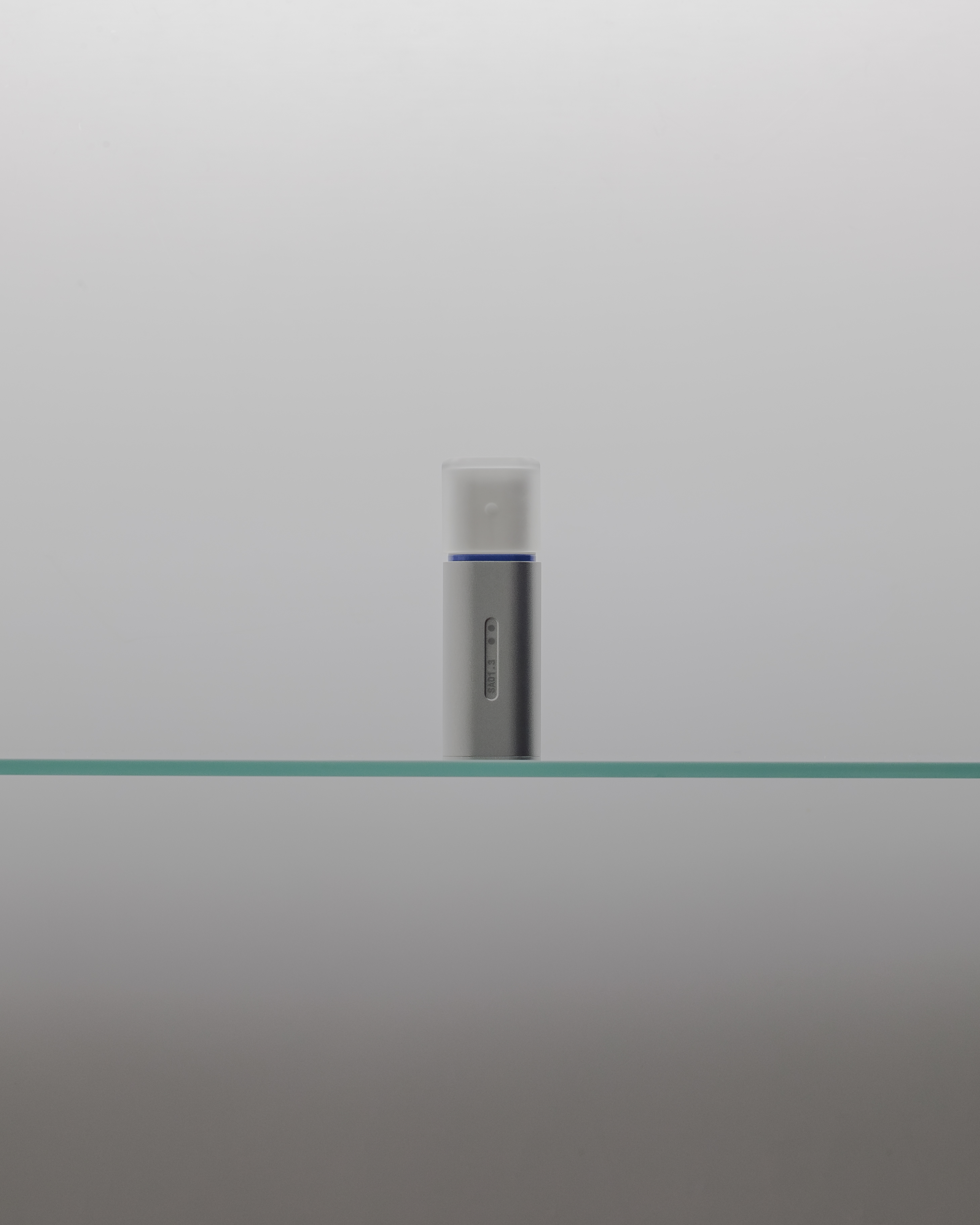
Spirometer
'New and emerging AI-powered technologies carry the promise of a radical overhaul in both healthcare reach and quality,' adds Modem co-founder, Bas van de Poel. 'With specialised chips enabling medical LLMs to run on the edge, basic triage becomes more accessible than ever. This is a significant step toward democratising healthcare, bridging the gap between technology and immediate, personalised care for all.'
Rosa Bertoli was born in Udine, Italy, and now lives in London. Since 2014, she has been the Design Editor of Wallpaper*, where she oversees design content for the print and online editions, as well as special editorial projects. Through her role at Wallpaper*, she has written extensively about all areas of design. Rosa has been speaker and moderator for various design talks and conferences including London Craft Week, Maison & Objet, The Italian Cultural Institute (London), Clippings, Zaha Hadid Design, Kartell and Frieze Art Fair. Rosa has been on judging panels for the Chart Architecture Award, the Dutch Design Awards and the DesignGuild Marks. She has written for numerous English and Italian language publications, and worked as a content and communication consultant for fashion and design brands.